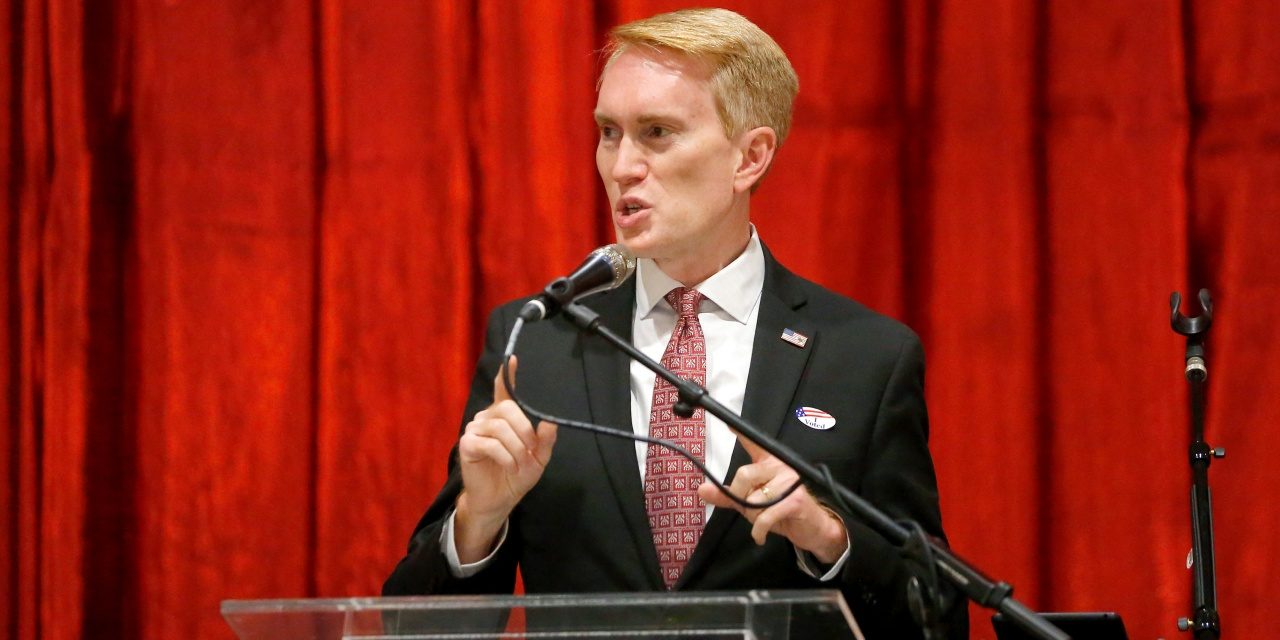Senator James Lankford, R-Okla., took the extraordinary step of apologizing to African Americans in Oklahoma for the unintended offense he gave by joining with other U.S. senators and representatives in calling for a commission to investigate election integrity claims stemming from the November 3 election results in several swing states.
Lankford sits on the Tulsa Race Massacre Centennial Commission, whose purpose is to create “projects that will educate Oklahomans and Americans about the 1921 Tulsa race massacre and its impact on the state and nation; remember its victims and survivors; and create an environment conducive to fostering sustainable entrepreneurship and heritage tourism within the Greenwood District specifically, and North Tulsa generally.”
When black leaders began demanding Lankford’s resignation from the commission due to his part in pushing for an election investigation, Lankford was “blind-sided,” by his own admission. So he dug deeper into the criticism, and ended up writing a letter this week addressed “to my friends in North Tulsa.”
“When I announced my support for an Electoral Commission to spend 10 days auditing the results of the 2020 Presidential Election, it was never my intention to disenfranchise any voter or state,” Lankford wrote. “It was my intention to resolve any outstanding questions before the inauguration on January 20. I believe Congress cannot legally ignore any state’s electors or change any state’s vote, but we can work to get answers to outstanding questions I want to strengthen the confidence all Americans have in their electoral system so everyone is encouraged to vote and knows their vote matters.
“But my action of asking for more election information caused a firestorm of suspicion among many of my friends, particularly in Black communities around the state. I was completely blindsided, but I also found a blind spot. What I did not realize was all of the national conversation about states like Georgia, Pennsylvania, and Michigan, was seen as casting doubt on the validity of votes coming out of predominantly Black communities like Atlanta, Philadelphia, and Detroit. After decades of fighting for voting rights, many Black friends in Oklahoma saw this as a direct attack on their right to vote, for their vote to matter, and even a belief that their votes made an election in our country illegitimate.
“I can assure you, my intent to give a voice to Oklahomans who had questions was never also an intent to diminish the voice of any Black American. As a United States Senator representing almost four million Oklahomans, I am committed to hearing from all Oklahomans, answering questions, and addressing our challenges to strive toward a more perfect union. In this instance, I should have recognized how what I said and what I did could be interpreted by many of you. I deeply regret my blindness to that perception, and for that I am sorry.”
Lankford, a former Baptist minister, worked with black leaders in Oklahoma to form the commission in 2015. As he notes elsewhere in the letter, we are less than 140 days from the 100th anniversary of the massacre, and he has worked to bring the story to the public’s attention – including on the Senate floor – and has worked for race reconciliation for a long time.
The senator, who withdrew his objection to the Electoral College certification following the riots on January 6, concludes with a plea for reconciliation with those he’s offended.
“Today, I am asking my friends in North Tulsa for grace and an opportunity for us to show the state what reconciliation looks like in moments of disagreement. None of us get any compensation or reward for what we do for the Commission, but being a part of the effort to shine a light on North Tulsa is an honor and a responsibility for me. Whether I am your Senator, a Commissioner, or just a private citizen, this is my calling. It is my mission, and I will continue working to support you for many years to come.”
For more information on the 1921 Tulsa Race Massacre, go here.






